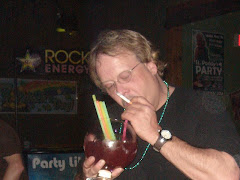Wed Mar 21, 2:15 PM ET
WASHINGTON (Reuters) - President Richard Nixon invoked it during Watergate, President Bill Clinton briefly asserted it during the Monica Lewinsky sex scandal, and President George W. Bush might next claim executive privilege in his battle with Congress.
A possible confrontation moved a step closer on Wednesday when a Democratic-led congressional subcommittee approved subpoenas to be used if White House aides refuse to testify under oath about the firing of eight U.S. prosecutors.
The action came the day after a defiant Bush vowed to oppose in court, if necessary, any subpoenas for his close political aide Karl Rove or other White House advisors.
The White House has offered to allow the aides to answer questions, but only behind closed doors, not under oath and with no transcript taken of their exchanges.
Any court battle probably would turn on executive privilege, a legal doctrine invoked occasionally throughout U.S. history to shield presidents and their aides from having to answer questions or turn over information to Congress or grand juries.
"That's the big question -- is Bush willing to go all the way on this?" one administration official asked. "Chances are he may feel this is worth it."
The U.S. Supreme Court in 1974 rejected Nixon's claim of executive privilege in the Watergate scandal and ruled that he must comply with a federal grand jury subpoena for the Watergate tapes.
In the Monica Lewinsky scandal, Clinton asserted executive privilege in 1998 in an attempt to block two of his White House advisors from testifying before a grand jury.
But a federal judge rejected the request, and Clinton then abandoned the claim before the dispute reached the Supreme Court.
If Rove and others refuse to answer questions under oath, claiming executive privilege, it would likely be challenged in the courts, a Democratic aide in Congress said. "Absolutely," the aide said.
A judge then would have to decide if the person deserves executive privilege -- a process that could lead to lengthy litigation and appeals.
A former U.S. Justice Department official predicted that a court fight probably will be averted.
"I expect that it will be resolved," the former official said, adding that in the past such disputes between the White House and Congress typically are worked out through a political compromise.
Alan Morrison, a Stanford University law professor who has argued a number of cases before the Supreme Court on the separation of powers between the various branches of government, agreed.
"My hunch is that, despite the noises on both sides, there will be some kind of a compromise. The White House has given up too much information already to have this be a good test case for executive privilege," he said.

Subscribe to:
Post Comments (Atom)






















No comments:
Post a Comment